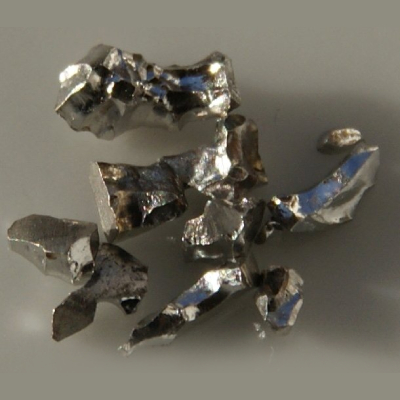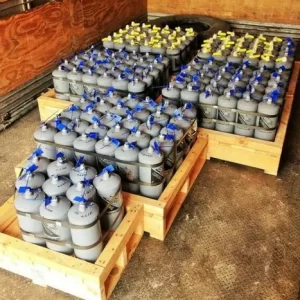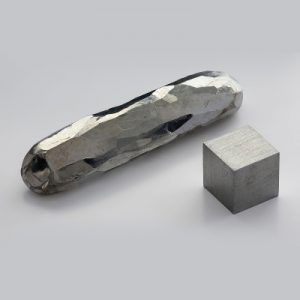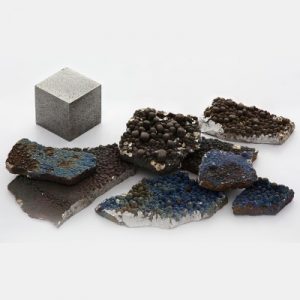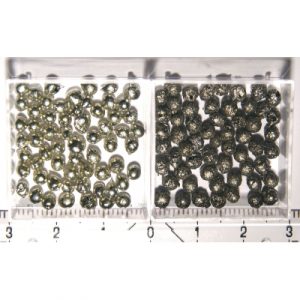Iridium (Ir)
| Properties | |
| Symbol | Ir |
| Appearance | Silvery White |
| Atomic Number | 77 |
| Atomic Weight | 192.2 g/mol |
| Group | 9 |
| Period | 6 |
| Block | d-block |
| Phase at STP | solid |
| Melting Point | 2719 K |
| Boiling Point | 4403 K |
| Density | 22.56 g/cm3 |
Iridium is a hard, brittle, silvery-white transition metal of the platinum group, iridium is considered to be the second-densest metal (after osmium) with a density of 22.56 g/cm3 as defined by experimental X-ray crystallography. It is the most corrosion-resistant metal, even at temperatures as high as 2000 °C. Although only certain molten salts and halogens are corrosive to solid iridium, finely divided iridium dust is much more reactive and can be flammable.
The most important iridium compounds in use are the salts and acids it forms with chlorine, though iridium also forms a number of organometallic compounds used in industrial catalysis, and in research. Iridium metal is employed when high corrosion resistance at high temperatures is needed, as in high-performance spark plugs, crucibles for recrystallization of semiconductors at high temperatures, and electrodes for the production of chlorine in the chloralkali process. Iridium radioisotopes are used in some radioisotope thermoelectric generators.

